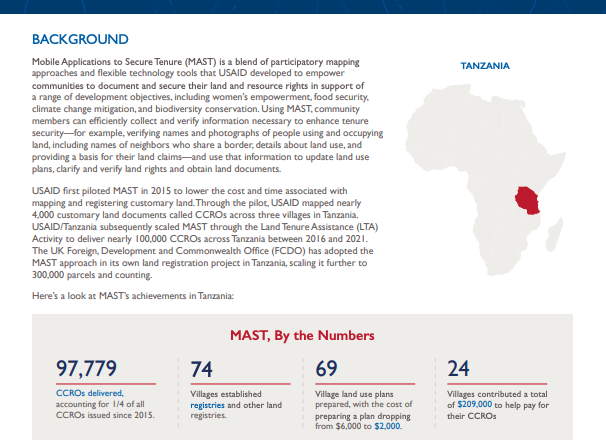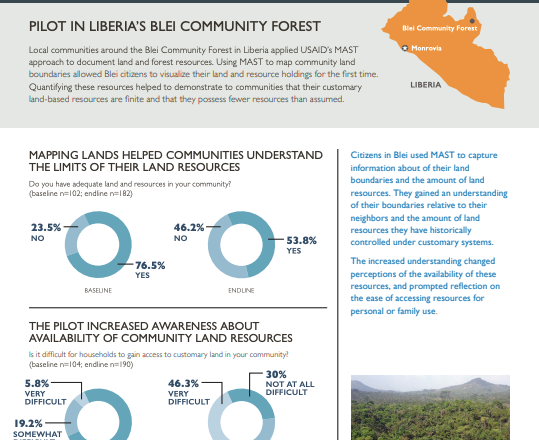Mobile Applications to Secure Tenure (MAST) is a blend of participatory mapping approaches and flexible technology tools that USAID developed to empower communities to document and secure their land and resource rights in support of a range of development objectives. In Tanzania, USAID implemented MAST in rural areas to lower the cost and time associated with mapping and registering customary land. Through the Land Tenure Assistance (LTA) Activity, USAID helped deliver nearly 100,000 customary land documents across Tanzania between 2016 and 2021.
This infographic highlights the cross-sectoral achievements of MAST in Tanzania, including reduced concerns about future land boundary disputes and land expropriation. To learn more about how MAST improved land and resource governance, among other outcomes, you can access the infographic below.



